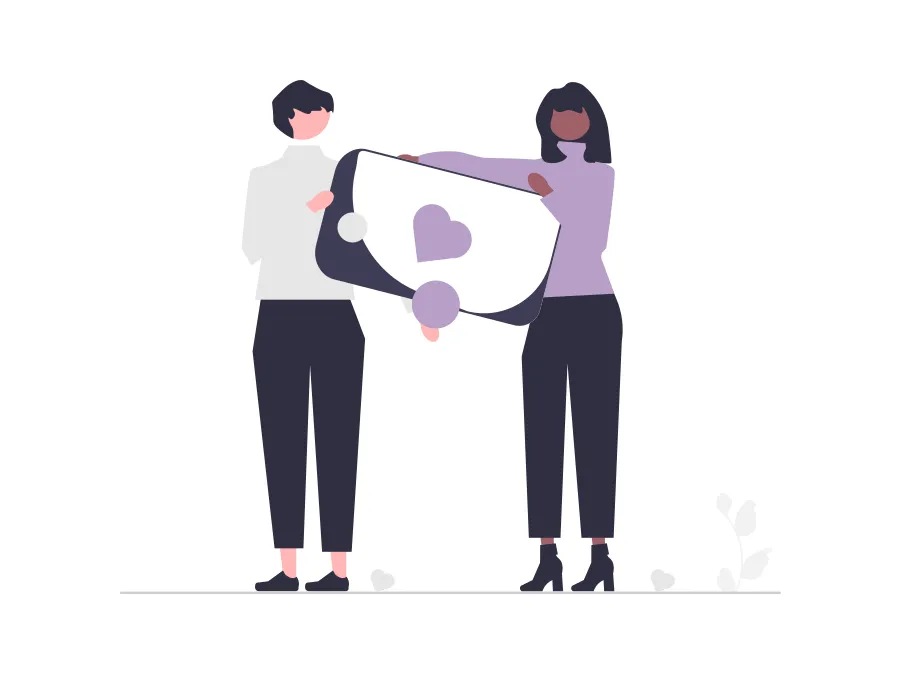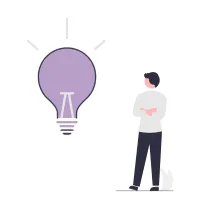Who Are Community Health Workers and How Can They Help?

Community health workers are unsung heroes in public health, helping to bridge the gap between healthcare systems and the communities they serve. Here’s what to know about this critical role.
Helping community members navigate the healthcare system and witnessing their empowerment and improved well-being was incredibly rewarding. Creating trust and a safe space for people to receive help was particularly satisfying.
Community health workers (CHWs) fill vital roles in their communities. They provide education on important topics like healthy lifestyle habits and cancer screening and prevention. They empower people to become self-advocates in their healthcare decision making. CHWs also connect people to resources that address unmet social needs, such as language or transportation challenges, that can prevent people from getting the care they need. And, in some cases, CHWs can also help improve people’s cancer experience.
In these ways and others, CHWs can help remove healthcare barriers and improve health outcomes. It’s a critical role that appealed to Patrick Crockett, who worked as a CHW for several years.
“My inspiration to become a CHW stemmed from witnessing the health disparities in my community and my desire to make a difference,” he shares. “The most fulfilling aspect of this role was seeing the positive impact on individuals' lives, including improved health outcomes and increased access to essential services.”
Today Patrick’s passion for the role hasn’t wavered. As a community engagement coordinator for a hospital, he works closely with CHWs. He is completing a 2-year term on a county board that collaborates with CHWs in the region. In addition, Patrick serves as a member of CSC’s advisory board for the new CHW Oncology-focused Training Program that offers cancer-specific educational resources and peer support forums for CHWs.*
Here’s What To Know About CHWs & Why Their Role Matters
Who are community health workers?
CHWs are public health workers. They may be members of the communities they serve or may come to the role with shared life experiences, cultures, and values of the communities they serve (National Association of Community Health Workers, 2023).
CHWs must complete a formal CHW certification program. Training programs vary slightly from state to state; some programs are 8 weeks, for example, and others are 16 weeks. Some employers may also require CHW candidates to have postsecondary education (Bureau of Labor Statistics, 2024).
While not all states have them, state certification programs for CHWs are growing: 20 states have programs and 16 are in development.

Did You Know?
Although CHW programs have been around for decades, the role is just starting to gain more recognition. In 2023, Congress introduced a resolution to designate Aug. 28-Sept. 1 as National Community Health Worker Awareness Week.
Where can I find community health workers?
CHWs work in a variety of places, from hospitals to public health departments. Community-based organizations also employ CHWs (Bureau of Labor Statistics, 2024).
What do community health workers do?
As Patrick puts it, “The daily responsibilities of a CHW can vary greatly depending on their organization and department.”
In his former role as a CHW, Patrick worked at a heart and vascular institute in two separate divisions. In one department, he provided health education, conducted screenings, and connected patients to cardiovascular health resources. In another department, he focused on connecting individuals with services and support to address urgent social needs like housing, food security, and access to healthcare.
Now, in his current role, Patrick provides guidance, resources, and support to CHWs at the hospital where he works. “Our CHWs are instrumental in connecting patients with comprehensive cancer resources, ensuring they receive the support they need throughout their cancer journey,” he notes.
Community outreach is another “big role” of CHWs, notes Angie Santangelo, LISW-S, who also serves on CSC’s advisory board for the inaugural CHW Oncology-focused Training program.
Angie explains that community outreach includes providing health education about preventive screenings like mammograms, Pap smears, and lung cancer screenings, and when people should get them. “And also helping with medical mistrust, to be able to say this is a trusted provider, or identify where there might be medical mistrust that is getting in the way of getting preventative screenings or following a treatment regimen that may have been provided.”
“A community health worker really is a frontline public health worker. [It’s an] individual who is able to go out into the community and do health checks, so they’ll have eyes on site and help identify any barriers that may be preventing an individual from getting the best care possible.”
— Angie Santangelo, LISW-S, Clinical Program Director, CSC Central Ohio
At CSC Central Ohio, where Angie is Clinical Program Director, the team’s CHW serves as a critical bridge for people who are living with cancer, linking them to needed resources and services. For example, the CHW can identify concerns that may be interfering with someone’s cancer treatment.
“So, whether that’s transportation to appointments, or whether that’s living in a safe, secure environment, or whether that’s having food on the table — or sometimes it may be that they’re not getting the care they need because someone in the house has greater needs — the CHW can help identify those needs and then [identify] community resources and referrals to help,” Angie says.
Note: CSC Central Ohio is part of Cancer Support Community’s network of 196 locations that provide free services and programming to people impacted by cancer. Not all CSC locations have CHWs, but they do have other qualified staff available, such as social workers, who can provide similar guidance and support.
What’s the difference between community health workers and social workers?
Social workers complete advanced education in their area of study. Depending on the degree program, they may also need to complete fieldwork in clinical practice. Some states also require licensure (LSW or LCSW) to work as a social worker.
Their extensive education and specialized training equip social workers to provide more intensive support, which CHWs are not prepared to do. As Angie puts it, “A social worker is someone who can do an in-depth assessment of needs and provide counseling and supportive services.”
How do community health workers promote patient self-advocacy?
By providing education and information, CHWs can give people the most important tools they need to be powerful self-advocates.
“As a CHW, I promoted self-advocacy by educating patients on their rights, teaching them how to communicate effectively with healthcare providers, and encouraging them to ask questions and seek second opinions,” shares Patrick. “Building trust and providing continuous support were key components of fostering self-advocacy.”
CHWs bring unique insights and cultural knowledge to the healthcare system, making them invaluable in improving health outcomes for underserved populations. Their work not only enhances individual health but also strengthens community ties and promotes overall well-being.
While each CHW’s role is unique to the organizations and communities they serve, all CHWs are important members of the healthcare team. Working together with social workers, physicians, and other care team members, CHWs are helping to increase access to healthcare, decrease barriers, and address unmet needs. Ultimately, this team effort will lead to improved patient outcomes and healthier communities.
*Editor's Note: The CHW Oncology-focused Training Program is made possible through the generous support of Bristol Myers Squibb and The Sheri and Les Biller Family Foundation.